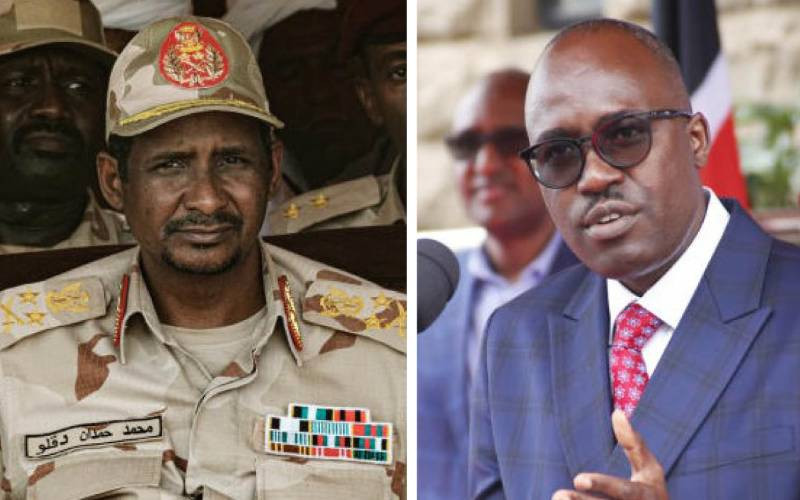Dear Government of Kenya: It gets to a point...
It has been an exasperating week to be Kenyan—at least for those who care about diplomacy and foreign policy. One diplomatic misstep after another has left many wondering: When will it stop?
First came the baffling decision to host Sudan’s Rapid Support Forces (RSF) in Nairobi.
The militia group, accused of committing atrocities—including mass killings, rape, and other war crimes—has been trying to establish a parallel government in Nairobi, while waging a war in Sudan.
The Kenyan government, despite intense criticism, defended its move, insisting that its role was to mediate conflicts and offer a "non-partisan" platform for dialogue.
"Kenya has a long history of providing platforms for peace negotiations without taking sides. We strongly believe the crisis in Sudan can only be resolved through dialogue, not military force,” said Foreign Affairs CS Musalia Mudavadi in a terse statement on Wednesday.
But the damage was already done.
The backlash was swift, and meetings involving the RSF in Nairobi were postponed, with an anticipated press briefing on Thursday abruptly cancelled.
Then came the blunder that turned Kenya’s Foreign Affairs Principal Secretary, Korir Sing’oei, into the punchline of an international joke.
On Thursday, he shared an AI-generated video falsely attributed to journalist Fareed Zakaria, claiming it praised Kenya’s peace efforts in Sudan.
“For the fake analysts who doubt the good faith of Kenya’s peace diplomacy, here is a cogent assessment by CNN’s Foreign Policy expert, Fareed Zakaria,” wrote Singoei on X.
But the video was a deepfake—a manipulated piece of misinformation. For a senior diplomat to share it without verifying its authenticity was not just careless; it was embarrassing. Worse still, this came amid growing scrutiny over Kenya’s handling of the Sudan conflict.
The Sudanese Sovereignty Council’s vice president, Malik Agar, issued a scathing rebuke in an open letter to President William Ruto yesterday.
“It is essential to remind President Ruto that his own country, to whom he owes a duty of care, faces numerous internal challenges, including poverty, youth unemployment and demands for transparency- issues that require his utmost attention. How can he claim to mediate Sudanese affairs when he has never experienced the scale of violence currently unfolding in Sudan?” he posed.
“The trail of actions taken by President Ruto represents an alarming trend of external interference that threatens to divide Sudan. Moreover, the backing of RSF by the Kenyan government is both morally questionable and legally indefensible,” the Vice President added. By Betty Njeru, The Standard






